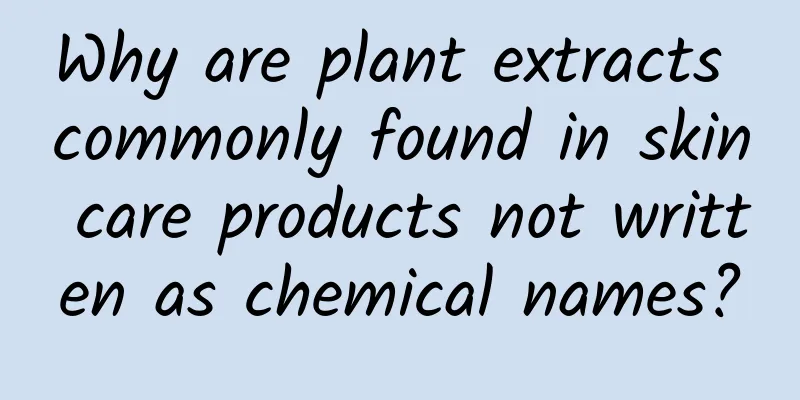If you keep getting acne, it may be caused by this! Dermatologists remind you...

|
Whether it is adolescent boys and girls or adults, pimples on the face (medically called "acne") are often unavoidable, which is very annoying. The market is full of products that claim to quickly remove acne, one of which is the acne patch . It is not only convenient, but also looks reliable, and has become the first choice for many people to remove acne. But can acne patches really get rid of acne? This article will take you to find out, uncover the principles behind acne patches, and help you make a more informed choice. Image source: a social platform Acne patches are useful, but not much We know that acne patches are a product, not a drug. In medicine, it is not a mainstream choice, and doctors do not think highly of it. However, objectively speaking, it is not a waste of money, but it is really useful. The reason for saying this is that some scholars have conducted scientific research on acne patches and found that they do have the effect of removing acne. For example, a few years ago, scholars in Taiwan compared an acne patch with an ordinary patch to observe the difference in their efficacy. In the study, the acne patch is a hydrocolloid patch, while ordinary patches do not have this key ingredient. They recruited 20 patients with mild to moderate acne and asked them to use acne patches (or ordinary patches) once every two days for up to one week. The results showed that the severity and inflammation of acne in those who used acne patches were significantly improved, especially in those who used it for 3 to 7 days, the improvement was much better than that of those who used ordinary patches. Not only that, the researchers also found that the acne patch can improve redness, oiliness and pigmentation to a certain extent. As for safety, the researchers also observed that no special side effects were found. This shows that the acne patch is really effective in removing acne. Copyright images in the gallery. Reprinting and using them may lead to copyright disputes. However, don’t get too excited yet, I’m going to pour some cold water on you right now – although acne patches are useful, they are not very effective. There are several reasons for this: There are too few studies on acne patches, and the evidence is not strong enough; After all, acne patches do not contain any medication and are likely to be less effective than standard medications; There are a large number of mainstream acne removal programs in the medical community, and their effectiveness has been confirmed by a large number of studies and clinical practices. As a doctor, my attitude towards acne patches is that they may be effective, but it is not worth exaggerating their efficacy. Beware of the risks of acne patches It’s worth emphasizing that using acne patches occasionally carries risks. It is relatively common that some acne patches themselves have poor breathability, or after long-term use, the acne is suffocated by pus on the surface, which will help bacteria grow and aggravate the acne. The reason for this is that the bacteria that cause acne, Propionibacterium acnes , prefer an oxygen-deficient environment. When there is less oxygen in the living environment, they reproduce better and the degree of infection is more serious. In addition, if you buy unreliable acne patches with mixed ingredients, there is a risk of skin irritation and allergies , which can manifest as redness, peeling, stinging, itching and other reactions where the acne patch is used. If you use acne patches and suspect the condition has worsened, it is better not to use them. In this case, you should stop using them and see a doctor immediately. Having said that, if the acne is severe and bothers you a lot, it is best to see a doctor first. It may be better for the doctor to evaluate and provide individualized symptomatic treatment. Copyright images in the gallery. Reprinting and using them may lead to copyright disputes. To get rid of acne The dermatologist's approach is... Doctors have too many ways to get rid of acne. To sum up, there are a few specific ideas: 1 Idea 1: Look at age If it is a child or teenager, oral medications will be used with caution, such as doxycycline, minocycline, and isotretinoin. Generally, topical medications will be given priority, such as benzoyl peroxide and clindamycin. If it is a woman, for some people with severe acne, occasionally consider adding combined oral contraceptives to take care of acne at the same time. In addition, if there are special circumstances, such as pregnancy or lactation, then you should avoid using retinoic acid drugs, such as isotretinoin and adapalene. 2 Idea 2: Look at the severity Acne can be mild or severe. Generally speaking, mild acne (such as very few pus-filled acne and pustular acne, just scattered closed comedones/blackheads) can be treated with topical medications first, while severe acne is often treated with oral medications combined with topical medications. If there are sequelae of acne, such as red acne marks, black acne marks, and acne pits, you can add other treatment options, even measures other than medication, such as medical acid peeling and photorejuvenation. 3 Idea 3: See if it is prone to relapse If recurrences are frequent, a strategy to reduce or avoid recurrences should be developed. A more common strategy is to first use a combination of treatments until the acne disappears, then slowly stop taking oral medications, and then transition to topical medications to continue consolidating for a period of time. 4 Idea 4: Strengthening care In addition to drug treatment, daily protection is also very important. The proven effective care suggestions are: pay attention to skin cleansing, you can use facial cleanser; wear makeup moderately and remove it on the same day; control your hands and try not to squeeze acne too much. As for acne patches, it depends mainly on personal experience. Doctors do not have standard and standardized usage recommendations. It can be used alone or in combination with medication. If used in combination, it is expected that the acne removal effect will be better. Finally, let's make a brief summary: Acne patches are a commonly used non-medical product. Studies have shown that acne patches can improve the severity and inflammation of acne. They may also help absorb sebum, be waterproof and breathable, reduce UV damage, and prevent hands from touching acne. In general, they have some acne-removing effects, but it should be noted that acne patches are not omnipotent, their effects are limited, and there is insufficient research evidence, so don't over-mythologize them. In addition, improper use of acne patches may be risky. For example, poor air permeability may lead to bacterial growth and aggravate acne. For severe or recurring acne, it is recommended to seek professional treatment from a doctor. Doctors will generally develop personalized treatment plans based on factors such as age, severity of acne, and whether it is prone to recurrence. Specific plans generally include topical medications, oral medications, medical beauty and other methods. Finally, daily care is also important, including keeping the skin clean, applying makeup appropriately, and avoiding squeezing acne. References [1] Chao CM, Lai WY, Wu BY, et al. A pilot study on efficacy treatment of acne vulgaris using a new method: results of a randomized double-blind trial with Acne Dressing. J Cosmet Sci. 2006; 57(2): 95-105. [2] Kuo CW, Chiu YF, et al. Gelatin/Chitosan bilayer patches loaded with cortex phellodendron amurense/centella asiatica extracts for anti-acne application. Polymers (Basel). 2021; 13(4): 579. [3] Jaturapisanukul K, Udompataikul M, Kanokrungsee S, et al. Efficacy and safety of a novel water-soluble herbal patch for acne vulgaris treatment: A randomized, assessor-blinds controlled, intra-individual split-face comparative study. Dermatol Ther. 2021; 34(3): e14925. [4] Acne vulgaris: Overview of management. UpToDate. https://www.uptodate.com/contents/en/acne-vulgaris-overview-of-management. Planning and production Author: Tang Jiaoqing, MD, attending physician of dermatology Review | Feng Jun, deputy chief physician of the Dermatology Department of Sinopharm Tongmei General Hospital Planning丨Yang Yaping Editor: Yang Yaping Proofread by Xu Lai and Lin Lin |
Recommend
How can offline education and training personal accounts build a WeChat private domain pool?
In the past two years, private domain traffic has...
How to write an activity planning proposal?
The end of the year is approaching and various ac...
On 520 Valentine’s Day, shall we say sweet words in the copywriting?
After being in the arena for a long time You will...
How do information flow ads dominate HeroAPPs such as Toutiao and Weibo?
Information flow advertising first appeared on th...
How to create tens of millions worth of products through content operations?
In my past work experience, I have always been th...
More than 1,100 Uber employees jointly wrote a letter asking the board to "return" Kalanick
A few days ago, Uber investors' "forced ...
Nissan launches Nismo Watch concept smartwatch: can monitor fuel consumption speed
[September 10 news] Automobile manufacturer Nissa...
How to become a good copywriter? First of all, you must learn to grasp the best selling point!
If you were asked to write copy for a product now...
Fruit freedom is difficult now, and it was even more difficult before
This article is excerpted from "The Code of ...
Who will be the first to be affected by the delayed retirement? Attached is the list of delayed retirement age 2022!
Delaying retirement has been one of the hot topic...
How much does it cost to customize a Panjin learning mini program? What is the quote for customizing Panjin learning mini program?
In order to better penetrate into various industr...
4 tips to reduce the cost of information flow advertising!
Those who have been exposed to information flow k...
The Future of Smart TVs from the Fight Between Xiaomi and LeTV
The war between Xiaomi and LeTV has been going on...
Guangxi characteristic mineral crystal - pyromorphite
introduction In the international mineral crystal...
What can we learn from Jiang Xiaobai’s marketing case?
In recent years, Jiang Xiaobai has achieved rapid...









